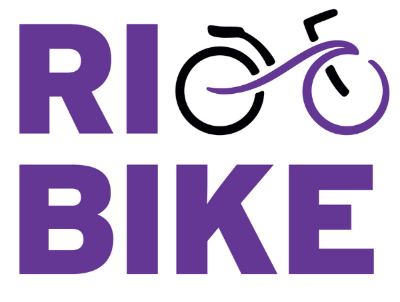Yesterday at the ECRI roundtable with RIDOT Deputy Director Pete Garino, we got a lot of clarifying responses about bike & transit projects and the forthcoming 10-year Transportation Improvement Plan:
- The “Blackstone River Bikeway Segment 1A” would connect the southern part of Gano Street to Richmond Square past the Crook Point Bascule Bridge in Gano Park. RIDOT and DEM are splitting the bill on its $1.3 million price tag, with the remaining hurdle of the Providence Board of Park Commissioners agreeing to maintain the path. This is pretty far along in its planning, in part because it has been identified by RIDOT leadership as a priority.
- Several lights on the George Redman Linear Park are out at the moment, and we were curious about whose responsibility it is to fix those. Generally, Garino indicated that it’s DEM’s responsibility to replace bulbs that are out, but currently one light is out because a drunk driver drove up onto the path and broke the light pole itself, which might be RIDOT’s responsibility to fix.
- It’s true that on-road bike infrastructure can be completed for minimal cost if done in conjunction with existing repaving projects. Garino made the valuable suggestion that bike advocates look at the repaving schedule for the next 10 years that RIDOT has already released and identify priority bike corridors from that now.
- The “Transportation Alternatives” section in the new TIP may cover a variety of different types of projects, including off-road and on-road bike infrastructure as well as ADA and trails projects. It’s up to the TAC subcommittees to decide what sort of projects end up in there.
- Garino has regularly spoken about his interest in devolving some bike projects to municipalities (and even nonprofit groups) to avoid the high “wedding prices” that contractors charge RIDOT. He spoke more on this topic yesterday. An example of how this could work was a recent agreement between RIDOT and the City of Woonsocket to have the City repave a state road through their existing paving contract and then receive reimbursement from RIDOT. This allowed the project to happen quicker and less expensively than conventional processes would allow. Basically, federal money comes with a lot of strings attached, and also funds the majority of major transportation projects. But there is some flexibility with it, and there may be opportunities for arrangements like this to make some bike projects in the state happen quicker.
There is a lot happening with the TIP, and we’ll keep you posted as we learn more. RIBike will be submitting the list of projects we think are most important, and you can help by getting in touch with your city/town’s planners and letting them know that bike investment is a priority for you.
